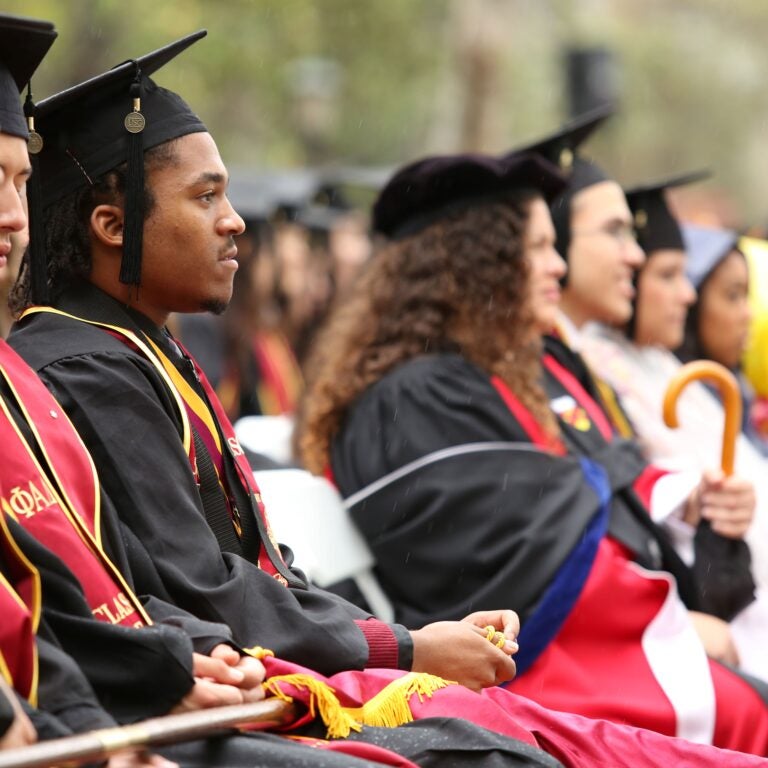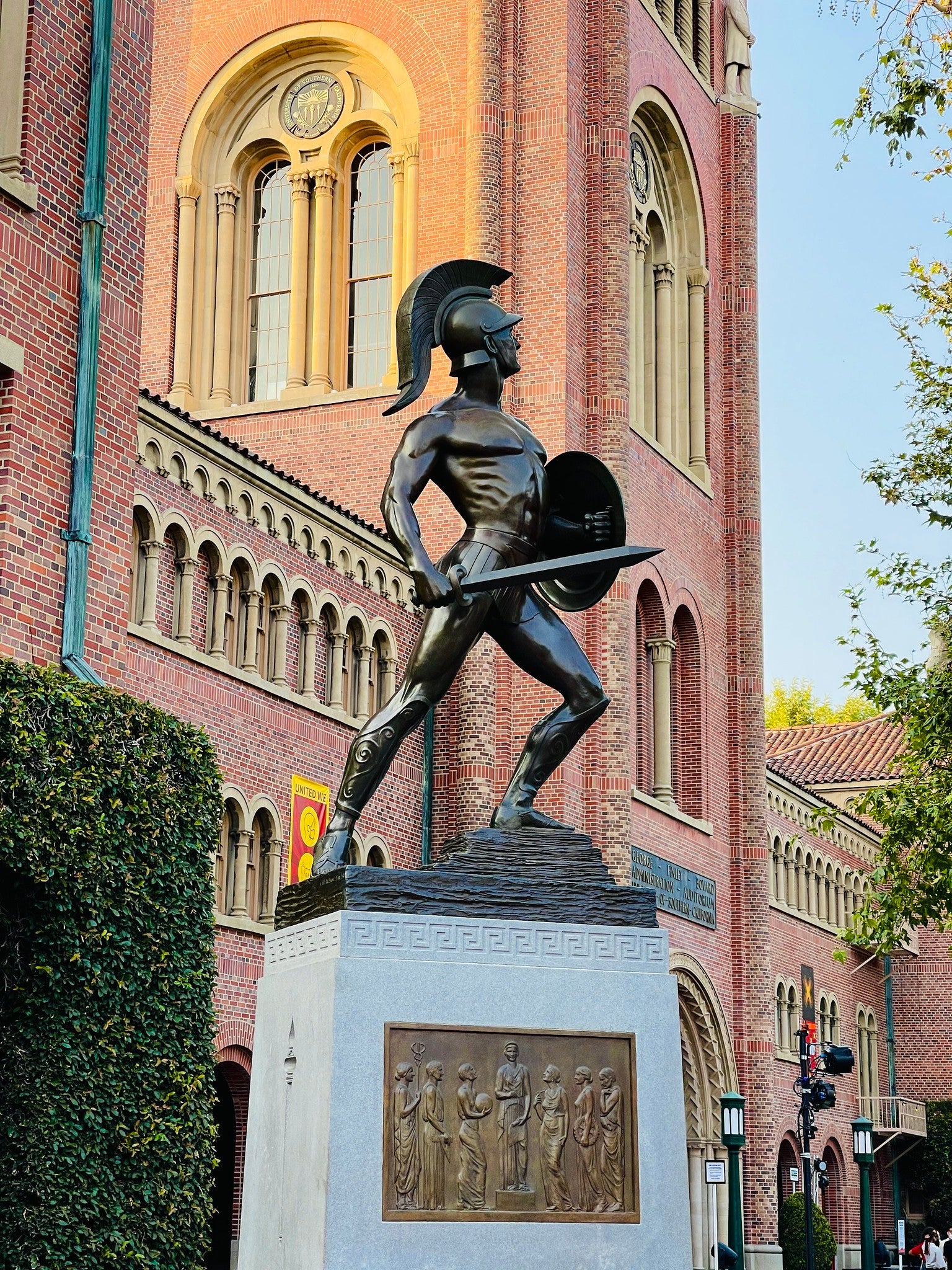
Current students
-
- MOST IMPORTANT!: Choose a major that represents your unique academic interests and take advantage of minors to round out your learning.
- Be serious about your studies. Your grades and academic progress are very important aspects of your graduate school applications.
- Strike a balance between academic coursework and extracurricular activities. Pursue your interests outside of class, but not at the expense of your grades. If you start struggling academically, take advantage of the ample support USC offers. Asking for help is a sign of STRENGTH!
- Ask your academic advisor about courses that will enhance your writing, reading comprehension and analytical skills
- Join student clubs or organizations of interest to find other people with similar interests and further explore your interests
- Explore careers that might be a good fit for your interests, value, and skills down the road
- Secure summer internships or research opportunities as ways to explore the field you are considering
- Research USC Alumni on the Trojan Network and LinkedIn. Determine occupations, industries, and study the types of graduate school degrees held by alumni
- Find a few mentors
- Build relationships with your faculty through class and office hours. Eventually you will need to ask several professors to write letters of recommendation for graduate school so it is mutually beneficial to start connecting early on
- Consider research opportunities such as lab research, Problems Without Passports (PWP) or teaching opportunities such as Joint Education Project, Prison Education Project, and Teaching International Relations program.
- Consider studying abroad
-
- Secure opportunities to conduct and conduct and present research or co-author papers with faculty or research assistants
- Consider highlighting your research through participating in the USC Undergraduate Symposium for Scholarly and Creative Work
- Attend graduate school related events and workshops to talk with schools about what they look for in candidates, advice for what you could be doing now to be the most competitive candidates, etc.
- Start researching graduate school programs you might be interested in. Use this worksheet to help you keep track of your findings
- Reach out to USC Alumni on the Trojan Network and LinkedIn who attended your graduate school program of interest and who are in your career of choice. Request to talk (Informational Interview) to learn about their path to graduate school and career
- Begin to explore possible sources of financial aid
- Familiarize yourself with any standardized tests needed for admission (ex. GRE, GMAT, MCAT, LSAT) based on what the graduate schools you might be interested in are requesting
- Take a practice placement test and work on your weak spots using a study guide. Schedule the test when you feel ready
- Decide whom to ask for letters of recommendation
- Check your unofficial transcript in MyUSC to make sure everything is in order
- Write a rough draft (or drafts) of your Statement of Purpose
- Draft a resume or CV to highlight your experience and skill
-
Fall of senior year
- Meet with faculty and other key contacts to request letters of recommendation
- Have various people read your Statement of Purpose and write a final draft
- Verify application deadlines with each school
- Allow plenty of time to open up application profiles with each school, complete all requirements and submit applications
- If necessary, apply to programs for fellowships or assistantships
- Visit campuses when possible
- Check with graduate programs to make sure your applications are complete
Spring of senior year
- Identify and talk to advocates including faculty, current students, or alumni in order to help make your final decision
- Complete financial aid applications, including the FAFSA, soon after January 1st (The earlier the better!)
- Expect to receive admissions decisions anytime from December through late spring. Patience is necessary!
- Consider highlighting your research through participating in the USC Undergraduate Symposium for Scholarly and Creative Work
- Managing stress during this challenging time is critical. If your anxiety and stress surrounding the law school application process start to affect your day-to-day functioning, please do not hesitate to utilize resources through the Engemann Center. They provide targeted workshops and are also available for one-on-one sessions
- After you are accepted, CELEBRATE! And then start investigating financial aid, housing, etc.
General timelines for alumni
- Determine the year you would like to start graduate school and reverse engineer the process detailed above from there (when to prep and take placement exams, ask for letters of recommendation, etc.)
- Start to prepare for required graduate school test(s) at least 6 months prior to when you plan to start graduate school. Take practice tests as needed to judge score progression.
- Research graduate school programs, and prepare a preliminary list of target schools (visit our “Researching Graduate Schools” page).
- Use the GRAD worksheet to help organize and review your research. Use the sorting tool to identify your preferred programs/schools
- Start finalizing your Statement of Purpose
- Attend the annual USC Graduate Schools Fair (usually late October) to connect with schools of interest
- Begin to consider how you will finance your graduate school educationand complete financial aid applications, including the FAFSA, soon after January 1st (The earlier the better!)
- Expect to receive admissions decisions anytime from December through late spring. Patience is necessary!
- After you are accepted, CELEBRATE! And then start investigating financial aid, housing, etc.

Didn’t get accepted right away?
Please know that acceptances AND rejections are part of this process. If you start receiving rejections, don’t panic. Remember- graduate school applicants are drawn from the waitlist until the beginning of the school year. Start talking to the graduate schools about their waitlist process, start thinking about back-up plans.
We suggest connecting with the school’s admissions team to express your continued interest in their program (it is not uncommon for admitted students drop out of programs last minute).
You might also consider if you want to wait for the next application cycle and during that time work on trying to become a stronger candidate through additional work-related experience, stronger test scores, revamped application materials, etc.
